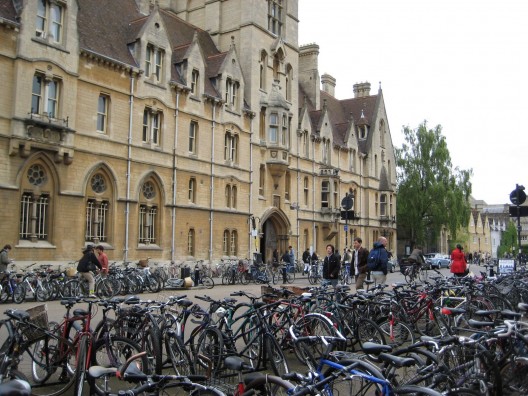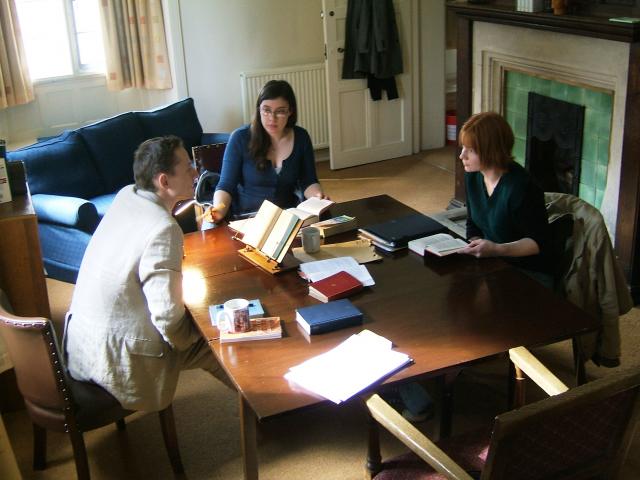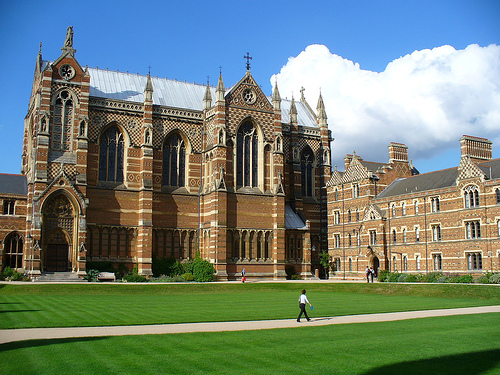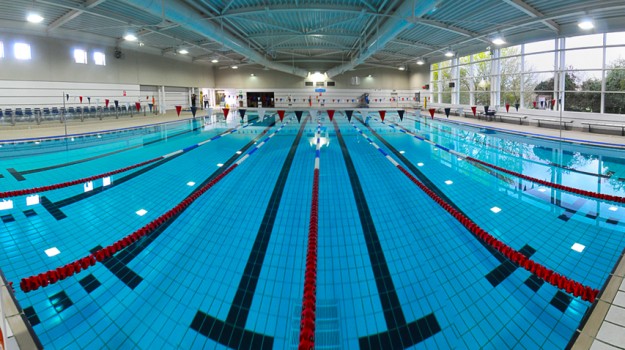Oh Oxford!!! Once my thoughts were only about you ....))) And today my article is about you!
Let's start with history
Oxford University is the oldest (!) university in the English-speaking world. Education here began in 1096 and developed rapidly in the 12th century.
From the very beginning of its foundation, the university has played an important role in the intellectual life of the country. For more than nine centuries it has been the center of controversy and controversy in science, religion and art.
Time passed... During the 20th and 21st centuries, Oxford has significantly increased its research potential in the field of natural and applied sciences, including medicine, and is now one of the best universities in the world with its strong research and development base.
Location
Located about 100km (62 miles) northwest of London, the campus is a vibrant medium-sized city with over 40,000 inhabitants. This number includes students from all 38 colleges that make up the university. Most university buildings are located centrally located and easily accessible on foot. In general, students are energetic people and often prefer bicycles.

Education
The education system here is very different from our native one. In most areas (and there are a lot of them: physical and mathematical, humanities, medical, sociological sciences, anthropology, biology, geography, jurisprudence, mechanical engineering, philosophy, linguistics, art, history, etc.) in the first year of study requires the passage of a number of compulsory courses in subjects. As for subsequent years, students are given the opportunity to choose the subjects they study (in my opinion, this is great!).
The Oxford system of education is based on tutoring- attaching students to individual consultants who are the best experts in their field, often recognized at the world level. Such classes with a teacher-consultant are held 1-2 times a week and are called tutorials ( tutorials).
Students usually have to prepare for them in advance, for example, write an essay or complete several mathematical problems that are discussed in class. As a rule, 2-3 students participate in such a tutorial.

According to experts (I will also modestly enter into their number :)) such an organization of educational activities develops independence, critical thinking, analytical skills and oral and written communication skills.
What about seminars and lectures? - you ask! Yes, they also have a place to be, but their role fades into the background. Attendance at lectures is generally not mandatory and does not particularly affect academic performance and learning outcomes. Here are the things.
College equipment and services
In total, Oxford University has 38 colleges. Each(!) of them has its own library, by the way, most of which work around the clock. In addition, there are large scientific libraries, for example, the world famous library Bodleian, which can request copies of any book published in the UK. Here is the power!
The university is well equipped technically. Computer rooms, network access and IT support are available in every faculty and building. There is more here Central Oxford Computer Center which offers free training.
All students can also use Language centre, which offers a variety of courses, and audiovisual classrooms are equipped with the latest technology.

The university also has Center for Confidential Student Advice.
A well-known Career Center offers students the best innovative programs, thanks to which they will be able to make more informed career choices after receiving a degree. In other words, the student can, in principle, partially transfer the headache of finding a job here).
Sport
It occupies an important place in the life of Oxford students. Who knows, maybe it is thanks to such a healthy attitude towards sports that the university can boast of such a high quality of education received in it?
The University of Oxford offers access to a variety of sports facilities: a 25 meter swimming pool, a hockey rink, a fully equipped athletics stadium, an equipped fitness room, a cricket pitch, tennis courts and numerous indoor sports facilities. Well, it is simply impossible to study here and not play sports!

Some tasty facts
- Movie Harry Potter filmed at one of Oxford's colleges
- University research groups account for most of the Nobel Prizes
- 25 UK prime ministers are university graduates
- Each college in Oxford has its own coat of arms.
- The laboratory at Oxford University has an electric bell that has been ringing continuously(!) since 1840
- The University Press, which publishes well-known dictionaries, is the world's largest university press.
- There is one strict prohibition - you cannot apply to Oxford and at the same time
- The university has more than 150 libraries - the largest of them has 6 million books!
- Alice in Wonderland(one of my favorite childhood books!) was written by Lewis Carroll within the walls of Oxford
- Only in the 20s of our century, women began to be admitted to the university, and until the 70s, education was separate (women's colleges)
- There are more than 300 student clubs on the territory of Oxford (you can do music, theater, politics, rowing, make films, etc.)
- Education here became paid only from the end of the 90s - before that it was budget
- Alas, it is not enough to receive money alone - you need to go through several stages of selection, one of the most important is an interview with referee, which evaluates the student's potential
- With a strong desire, even a Russian applicant, student or graduate can get a classical or a degree at Oxford for free - by receiving a grant or compensating the fee through scholarships
For dessert
I think there were enough facts to prepare for what Oxford students do in their free time))
P.S. Students sing a cappella!
P.P.S. I really want to believe that the plastic movements of these talented guys are not a sign of their “disorientation”)
